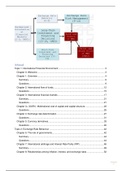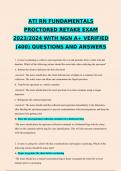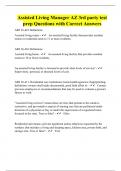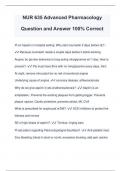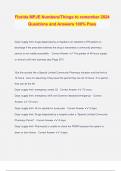Samenvatting
Summary MF Lecture Notes & Question Solutions (Grade: 8)
- Instelling
- Radboud Universiteit Nijmegen (RU)
Very extensive lecture notes on chapter 1-19 of the book and the 3 additional reading chapters, discussed in the lectures. The preview shows an overview of all the chapters discussed. - Contains a summary for some of the chapters. - Contains the questions given to do for all of the chapters given ...
[Meer zien]
